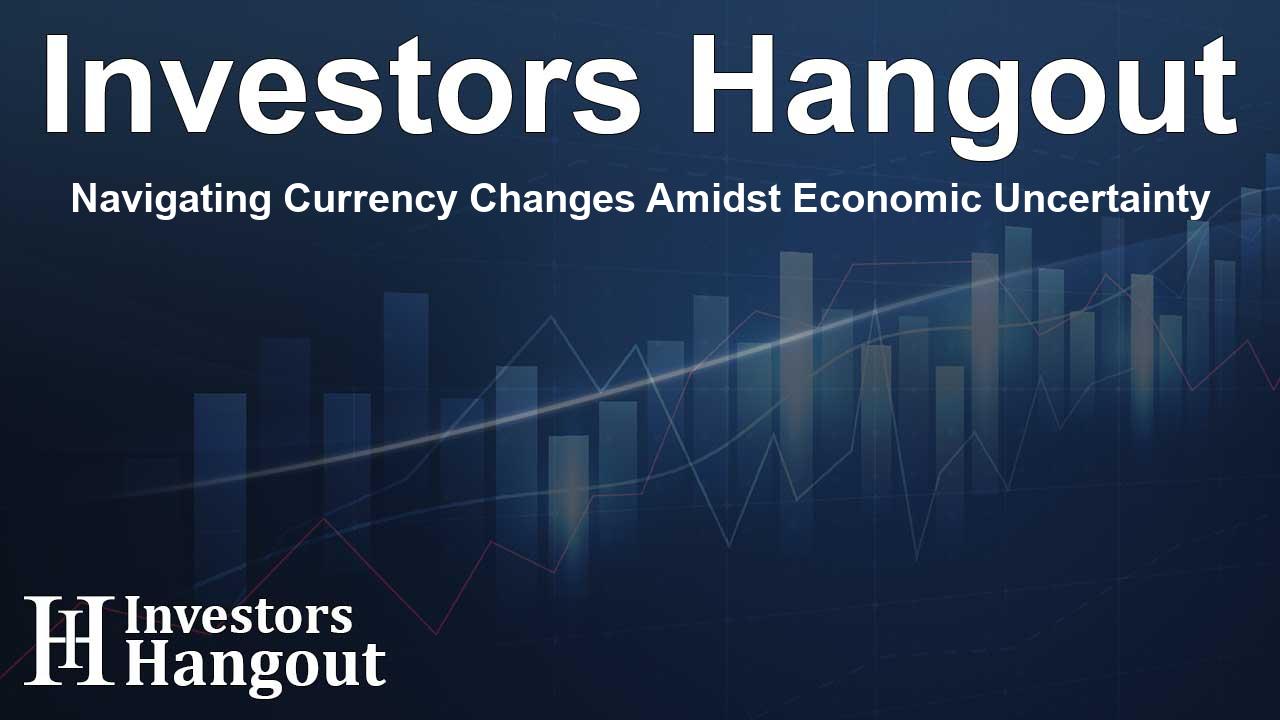Navigating Currency Changes Amidst Economic Uncertainty

Navigating Currency Changes Amidst Economic Uncertainty
By Jamie McGeever
As we delve into Asian markets today, we are greeted by a whirlwind of uncertainties that characterizes the current global financial landscape. Investors are on high alert, trying to decipher the implications of evolving policies from the recent U.S. administration.
In the wake of significant political changes, trading conditions have become increasingly volatile. Reports suggest a strong likelihood that tariffs will be imposed on imports from America's main trading partners. However, details regarding which products or countries will be affected remain unclear. This ambiguity leaves the U.S. dollar and various other currencies susceptible to intense fluctuations in the foreign exchange (FX) markets.
Market Reactions to Political Developments
The impact of these uncertainties extends beyond currency trading and is being felt across several asset classes. Investors are closely monitoring implied volatility as measured by various indices. There’s noticeable concern regarding price range expectations among major currencies, which have been fluctuating significantly. Despite a pullback observed in the latter part of the previous trading day, the apprehension remains palpable.
Market participants are relieved that immediate protectionist measures have not been implemented. They anticipate that the administration’s strategy might mirror an approach labeled by analysts at a prominent global bank, which promotes a stance of 'talk tough, aim high, but act gradually.' Such a strategy might mitigate some immediate risks while allowing for a more measured execution of policy changes.
Impact of Tariff Speculations
However, remarks suggesting potential tariffs as early as February sent the dollar into a brief but significant reversal. This incident serves as a crucial reminder of the unpredictable terrain investors must traverse in the upcoming weeks and months. The dollar appears stretched concerning positioning and sentiment, as indicated by hedge funds holding their largest long dollar positions in nearly a decade.
According to recent surveys, the 'long dollar' stance is among the most crowded trades right now. Analysts further suggest that the currency may be overvalued by a slight margin. Nevertheless, this does not preclude the possibility of continued strength, especially should the administration pursue aggressive protectionist policies and fiscal approaches.
Asian Market Outlook
Looking toward Asia, the preliminary outlook for the trading day seems fairly optimistic. The calm observed on the global FX scene, coupled with declining Treasury yields and solid gains on Wall Street, sets an encouraging stage for the opening of markets. Nikkei futures, for instance, are indicating a potential increase of approximately 0.75% for Japanese equities at the Tokyo opening bell.
The Chinese Market’s Current Status
China's markets are also under careful scrutiny as they continue their decent start to the week. With the mixed signals regarding tariffs from the U.S., the yuan has appreciated, reflecting its best performance in the spot market trading since the late summer months. The currency's recent strength comes after a series of positive adjustments by the central bank in response to the shifting economic winds.
Key Economic Events to Watch
As we navigate through this week, several key economic indicators will emerge that could provide a clearer picture of market directions. Notably, New Zealand is set to release new consumer inflation statistics, while Malaysia's central bank is expected to announce an important interest rate decision. The ongoing World Economic Forum in Davos also aims to highlight various global economic discussions.
Key upcoming events include:
- Release of New Zealand's consumer inflation figures
- Announcement of interest rate decisions by Malaysia's central bank
- Ongoing developments from the World Economic Forum in Davos
Frequently Asked Questions
What is impacting currency trading currently?
Current currency trading is heavily influenced by uncertainties surrounding potential tariffs and the implications of the new U.S. administration's policies.
Why is there volatility in the dollar's value?
The dollar’s volatility stems from investor reactions to speculation regarding tariffs and the positioning of hedge funds, prompting rapid shifts in trading sentiment.
How are Asian markets expected to perform?
Expectations lean towards positive performance in Asian markets, significantly buoyed by calm FX markets and encouraging signals from Wall Street.
What economic indicators should be monitored this week?
Key indicators include New Zealand's inflation figures and Malaysia's interest rate decision, which could influence market directions significantly.
What is the significance of the World Economic Forum?
The World Economic Forum is crucial for presenting global economic discussions and insights, impacting policy decisions and market sentiments worldwide.
About The Author
Contact Owen Jenkins privately here. Or send an email with ATTN: Owen Jenkins as the subject to contact@investorshangout.com.
About Investors Hangout
Investors Hangout is a leading online stock forum for financial discussion and learning, offering a wide range of free tools and resources. It draws in traders of all levels, who exchange market knowledge, investigate trading tactics, and keep an eye on industry developments in real time. Featuring financial articles, stock message boards, quotes, charts, company profiles, and live news updates. Through cooperative learning and a wealth of informational resources, it helps users from novices creating their first portfolios to experts honing their techniques. Join Investors Hangout today: https://investorshangout.com/
The content of this article is based on factual, publicly available information and does not represent legal, financial, or investment advice. Investors Hangout does not offer financial advice, and the author is not a licensed financial advisor. Consult a qualified advisor before making any financial or investment decisions based on this article. This article should not be considered advice to purchase, sell, or hold any securities or other investments. If any of the material provided here is inaccurate, please contact us for corrections.
